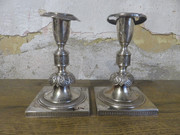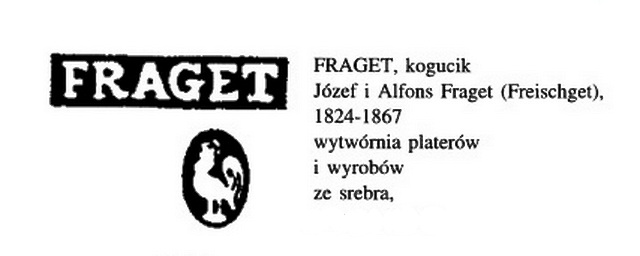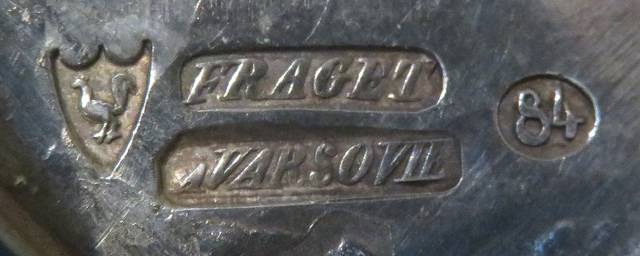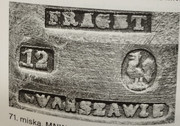I bought a pair of candlesticks. I tested, it is silver, but unfortunately I've never seen this mark before.
I think I know the maker, Jósef Fraget from Warsawa (as the hallmark shows too) but very unusual.
I know, but I know too that this part of Poland was under russian rule from 1830. (I'm little unsure about the exact date).
The marks are very unusual for me,the Russian marks I know from this era are completely different. Has anyone seen a signal with such contours and characters? Is it rare, no one knows similar, or it is fake marks?
The style of the candlesticks is ok, tipical.
Anyone has any suggests?


Thank you for your help!
Best regards!
Krisztián





